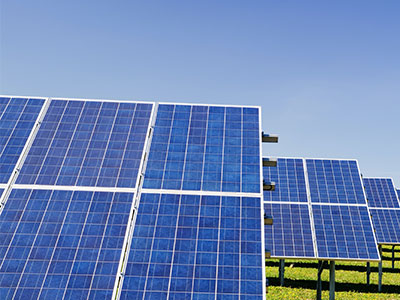Could your land be suitable for a solar farm?
Leading residential and renewable land promoter, The Strategic Land Group (SLG), talks about the search for suitable land to house solar farms and explains the benefits for farmers seeking to diversify their business and create new income streams.
 As we continue to grapple with the energy crisis, soaring prices and the resulting impact on businesses and households, renewable energy has never been more important. We’re no stranger to the benefits of solar energy and the hunt for suitable sites in the UK has ramped up in recent years. While policy hasn’t always been especially clear on solar farms and the government’s stance (last year the use of agricultural land for installations hit the headlines), boosting the UK’s solar capabilities will remain an important part of the country’s energy security strategy. SLG has seen a sharp increase in interest throughout the last twelve months, both from solar farm operators and from landowners looking to make better use of under-used sites.
As we continue to grapple with the energy crisis, soaring prices and the resulting impact on businesses and households, renewable energy has never been more important. We’re no stranger to the benefits of solar energy and the hunt for suitable sites in the UK has ramped up in recent years. While policy hasn’t always been especially clear on solar farms and the government’s stance (last year the use of agricultural land for installations hit the headlines), boosting the UK’s solar capabilities will remain an important part of the country’s energy security strategy. SLG has seen a sharp increase in interest throughout the last twelve months, both from solar farm operators and from landowners looking to make better use of under-used sites.
So, what should farm businesses know about solar farms? And what makes an ideal site?
Paul Smith, SLG’s managing director, talks us through the basics:
Solar farms can be flexible
Creating a solar farm won’t automatically sterilise the land it sits on - while it’s true that it will no longer be suitable for grazing by larger animals, it can still be grazed by sheep and, with the use of clever new ‘agrivoltaic’ systems, it is even possible to grow some crops on the land.
Finding the right site
Technical constraints aren’t desirable when it comes to solar farms - we don’t like to see steeply sloping sites or those at risk of flooding. It’s also important to have access from a nearby road. There’s no such thing as the “perfect” site though, so if it meets most of the criteria it can often be made to work.
Securing access to power
Power is of course a key consideration when thinking about solar farms; there must be capacity in the grid to accept power generated at the site and the cost to connect must be reasonable enough to make the project viable. A land promoter like SLG can handle this on the landowners’ behalf, working with the operator to establish access and cost and make a call.
Land that doesn’t make the cut for farming
Ideally, we’ll be looking for land that didn’t make the cut for growing food - there are plenty of sites that are flat, have access and can access the power grid, but, for a multitude of reasons, aren’t high-quality enough to grow food and other crops. Sites which are Grade 3b and below are perfect for solar farms.
Securing planning permission
Getting planning permission for the new solar farm is one of the trickier parts of the process. Once an agreement is in place, a land promoter will secure both planning permission and the grid connection at their own cost and risk. If we don’t succeed, it doesn’t cost the landowner a penny. We have a great deal of experience in delivering planning for these sites and will be able to assess our chances of getting planning at the outset, giving you the best chance of success.
Choosing an operator
An operator will be selected to build, run and maintain the solar farm once planning is confirmed, with your land promoter handling those conversations and negotiations on your behalf.
Long-term land ownership
Again, a land promoter will be able to operate on farmers’ behalf to negotiate rent and lease terms with the solar farm operator. Generally, they run on 30-40 year leases with annual rent. The rent for the site will be index-linked and will depend on the size of the solar installation and the cost of connecting to the grid. However, figures will be agreed at the outset, making sure that farmers have certainty in terms of costs and commitment.
Maintaining the land
Once a deal has been agreed, the solar farm operator will maintain and secure the land; there’s nothing for the landowner to do. And once the lease is up, they’ll even restore the land to its previous condition.
Solar farms offer a guaranteed, long-term additional income stream for farming businesses, while optimising under-used sites. It should form part of a wider strategy for those looking to diversify. If you have land that could be suitable, reach out to a land promoter and start the ball rolling.
Paul Smith, managing director, The Strategic Land Group (SLG)
- Log in to post comments

